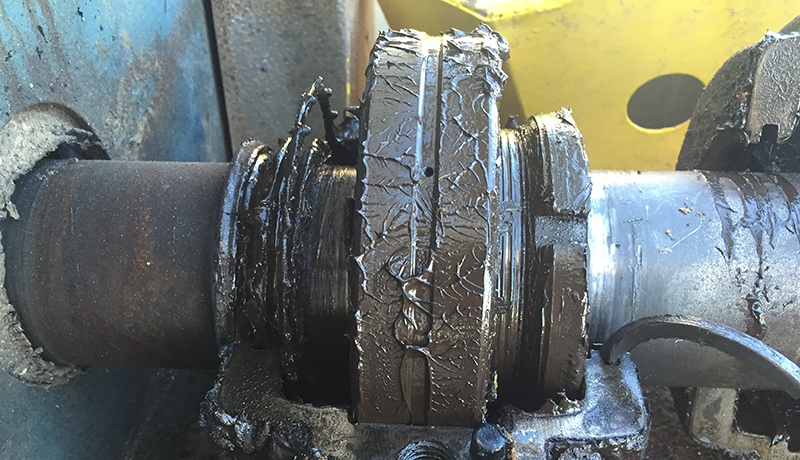
Guest post by Paul Llewellyn – LUBRICATION ENGINEERS
As with so many things, such as dogs, all greases are not the same. There are greases that are made simply to meet the slimmest of specifications and then there are greases designed to far exceed basic performance specifications.
Greases are primarily made up of oil (70%-95% base oil) of a certain viscosity that is held (like water with a sponge) with some type of thickener, also called a soap. Next, there are additives to increase performance characteristics of the grease, such as extreme pressure additives, additives to protect protect the surface of the metal (such as rust and corrosion inhibitors), and additives to protect the grease itself, such as anti-oxidants.
Additionally, the soap, or thickener itself, will have certain desired performance features. If moisture is the primary concern, one should choose a grease where the thickener itself has good water wash out/spray off resistance capabilities (such as an aluminum complex or calcium sulfonate.) If heat is your main issue then perhaps a clay/bentone soap is the best choice. Additionally, industry has chosen a polyurea thickener for electric motor grease applications because of its stability and oxidation resistance. It is important to note that not all grease based oils or thickeners are compatible, and when mixed, can cause serious issues and ultimately lead to bearing failure.
Finally, we are our own worst enemy when it comes to handling the greases we put into the bearings. We introduce contamination with poor storage and handling practices (such as leaving the lid off the grease keg) or introducing a dirty grease pump into a new container. Be sure to take precautions when handling and applying grease to expensive bearings since unscheduled downtime is very costly. Remember, not all greases, bearing designs or operating conditions are the same: choose your grease wisely!
Filed under:
Lubrication by Paul Llewellyn - Lubrication Engineers
